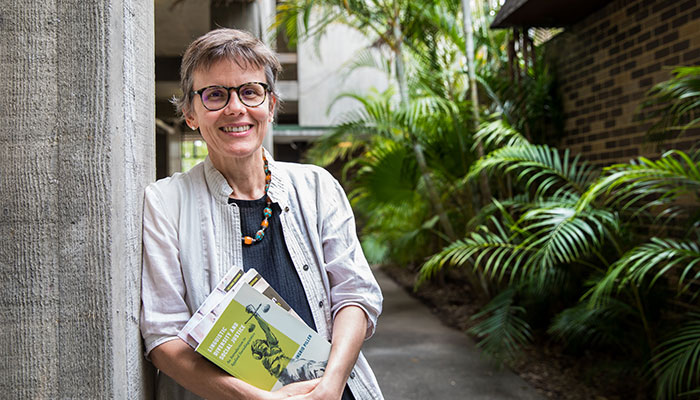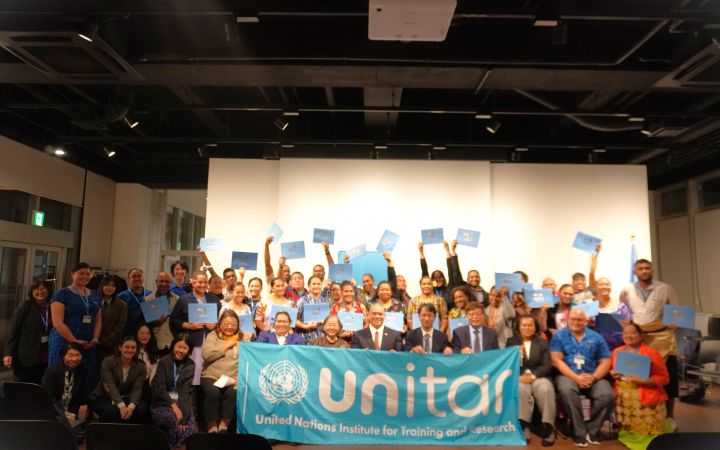New migrants to Australia face the double burden of having to learn the English language and settle into a new home through the medium of that language.

How they navigate that dual challenge affects the way they live, make friends, raise families and find work.
Showing just how is collating two decades of research into the journeys to “belonging” of 130 migrants from 34 countries.
For many migrants, establishing careers can be a heartbreaking struggle.
Says Research Director in the Linguistics Department: “Even cleaners can’t establish a cleaning career because they need to do a TAFE certificate for things like handling chemicals. If you don’t speak English very well and have little formal education, you can’t do that, so even if you’ve been cleaning all your life, you might not be able to do it in Australia.
“At the other end of the spectrum are highly qualified medical and healthcare professionals who can’t get re-certified. They either spend years trying to recapture their qualification or end up doing something that needs fewer qualifications.”
Like the midwife who came from Bulgaria with a degree and 30 years’ professional experience. She ended up working as a phlebotomist for a blood collection unit, despite a midwife shortage.
Second language blues
A key difference between adult and child language learning, says Distinguished Professor Piller, is the mismatch between language skills and social requirements.

“The social demands on a child are usually limited and their language grows simultaneously with their socialisation. For adults, things are very different. The social responsibilities of an adult usually require a full linguistic repertoire.
“Migrants’ linguistic repertoire in their other languages becomes invisible and in English they may sound stupid, incompetent or boring. Things they may be perfectly capable of saying in their first language suddenly become difficult.”
Because of this mismatch between linguistic proficiency and social demands, she says, our society generally holds a “deficit view” of adult language learners.
“We ignore that they are fully capable adults who may just be struggling to find the right words in English, or whose accent sounds unfamiliar. Instead, we draw conclusions about their character, their capabilities, their skills, their credibility, their value as a person.”
Few Australians have experience with learning another language themselves and so they often lack empathy when migrants take a while to learn the language, she says.
“They do not realise that having an accent does not mean anything. Everyone has an accent, whether it’s a true-blue Aussie accent or a second language accent that shows traces of another language. Accent is highly salient but it’s not a good indicator of language proficiency.”
It’s the economy
Australia’s migration program is firmly embedded in its economic policy. A major rationale behind it is to fill skill gaps and to bring new human resources into the country.
Migrants are not just a bundle of labour market skills. We need to treat them as people on a pathway to full citizenship and help smooth their journey from peripheral to full participation.
The terms of reference of a 2023 parliamentary inquiry into migration mostly related to economic considerations, as they define “immigration as a strategic enabler of vibrant economies,” seek to explore “attraction and retention strategies for working migrants” and find strategies for “strengthening labour market participation.”
“Given how central economic and labour market considerations are to Australian migration, migrants’ struggles with finding work and establishing careers may seem surprising,” says Distinguished Professor Piller. “There is clearly a deep misalignment, and it is important to ask how this mismatch can be resolved.”
Many migrants find themselves unemployed, underemployed or without work in areas for which they are qualified. For many, qualifications are misrecognised, experience is erased and aspirations are dashed.
And it’s the labour market that loses out.
A 2019 survey of 1,700 skilled migrants to South Australia, for instance, found that 53 per cent had not been able to secure work that adequately used their skills and abilities.
Selling the soundbite
Most participants in the book’s research struggled with the lack of pathways in the early settlement phase that would take seriously what they brought with them and provide a route to upskilling if needed, or an entry into a position where they could gain local experience.

Words matter: Distinguished Professor Ingrid Piller, pictured above, says migrants learning English can be unfairly judged as they try to build their new lives in Australia.
Many floundered as they were misdiagnosed as incompetent English speakers and had to navigate a maze of educational options, none of which seemed particularly relevant to their needs.
“The oft-stated ambition of Australian politics to create ‘a seamless transition for new arrivals from the airport to the workplace,’ may provide a good soundbite,” says Distinguished Professor Piller.
“But it is not working, because tailored needs assessments, short-term onboarding programs and bridging programs are lacking.”
Skills recognition, she maintains, “is too often an all-or-nothing game where state actors who issue visas and professional bodies tasked with skills recognition operate in splendid isolation from each other.”
The way forward
Redoing full degrees or leaving the profession entirely are too often the only options. Greater creativity with learning-on-the-job options and tailored bridging qualifications is needed, says Distinguished Professor Piller.
Social networks can help in finding meaningful work, and that’s often the hardest thing for migrants because it takes time to create new and helpful networks. One recommendation in Life in a New Language is for the creation of buddy systems to support new migrants.
The scrutiny of migrants’ English allows the host society to evade responsibility for successful communication, Distinguished Professor Piller says, and to ignore the barriers erected by a narrow understanding of what constitutes linguistic proficiency.
“Migrants are not just a bundle of labour market skills. We need to treat them as people on a pathway to full citizenship and help smooth their journey from peripheral to full participation.”
is published by Oxford University Press.
The book is the result of an ethnographic data-sharing project which involved reanalysis of data from six different research projects conducted mostly at Macquarie University between 2000 and 2020. There are additional resources on the book’s website, including a podcast series.








